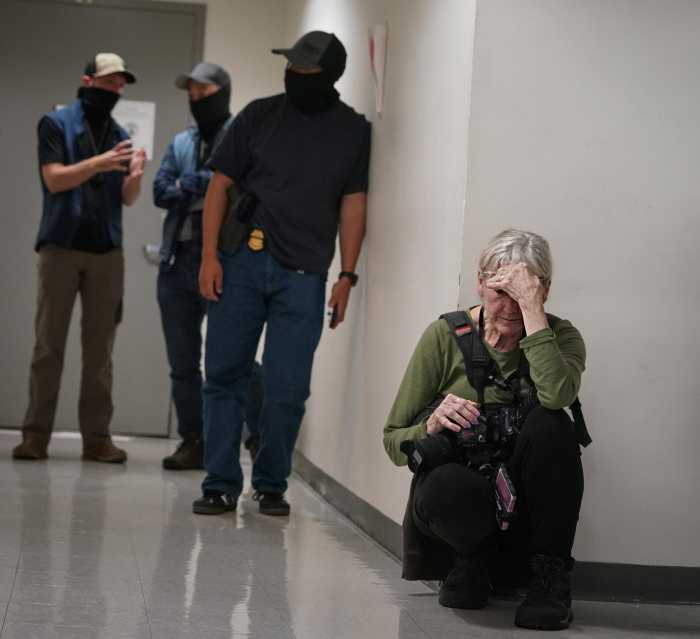Former New York Civil Liberties Union Executive Director Norman Siegel, who has his sights set on the office of public advocate, spoke to residents gathered in Towers on the Green on Friday, September 26.
Now working as a civil liberties attorney based out of Manhattan, Siegel began by speaking about the financial crisis, describing the week of his visit as “an eye opener.” He said that what is being seen is the amount of greed that took place within some major companies during the last 10 years and some of the “bad judgment calls” that were made.
“Now we’ve discovered in the last week for sure because of all the attention that has now been brought to this issue that some of the CEOs for major corporations…were making risky investments and making judgments that eventually brought at least some of these companies to the brink…and a few of them actually went under,” Siegel said.
One of the aspects in regards to the government bailouts that Siegel said he finds troubling are the golden parachutes being given to CEOs. He said that he found it unfair that even if their decisions led to the bailout that they are “still entitled to millions of dollars as a bonus on the way out.”
“What I haven’t heard enough is the concern for regular people, for people who have a 401K, for people who have retirement funds,” Siegel said.
Another topic that Siegel brought up was term limits, which he said people have voted in favor of “overwhelmingly” during referendums in 1993 and 1996. He said that although the 22nd amendment of the Constitution states that a person can only serve as president for two terms, in New York City elected officials are able to serve for two consecutive terms, stay out of office for four years and then return again.
Because of the term limits that were adopted in 2001, 35 of the 51 members of the City Council will be forced to step out of their positions on December 31, 2009. The same will go for the office of the mayor, public advocate and comptroller.
Siegel said that the topic is now up for discussion again as people considering changing the limit from two terms to three. Before such a change takes place, Siegel said that issue should be debated and a third referendum should be held to see what the majority of people want. He also said that “you don’t change the rules mid-stream” and that if the change were to go through it should not be applicable until 2013. Overdevelopment in New York City was another focus of Siegel’s speech. He said that although previously the government only took over a person’s home or business for public use, eminent domain is now used to take over property that is for private use.
“I feel strongly about it because property rights are a fundamental right in this country,” Siegel said. “It distinguishes us from other nation states.”
Before taking questions from the audience, Siegel spoke about the office of public advocate, which he plans on running for. “It’s a position that I think can revolutionize government vis-a-vis the people because the concept is that you’re the advocate for the public,” he said. “Any time that a citizen in New York has a complaint or grievance or a concern or problem with any aspect of city government, you should be able to call that office and get an advocate for free for you.”
Siegel concluded by saying, “This is not a position of a traditional politician. It shouldn’t be used for a stepping stone. It should be used for someone who likes to advocate for people and doesn’t want to be part of the politician club.”































